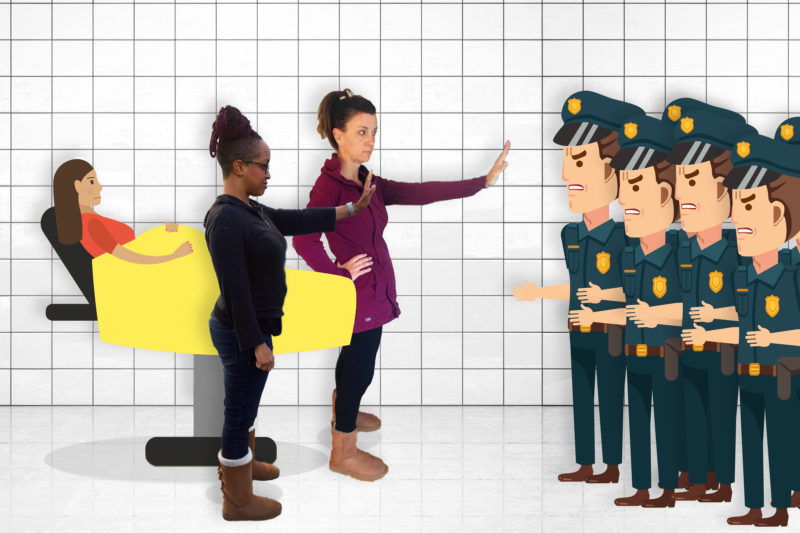Boom! Lawyered: Pregnant and Going to the Doctor? You Might End Up in Jail
Jess and Imani explain the laws and policies that pipeline pregnant people into the criminal justice system. Then they speak with the reproductive justice advocates at the SIA Legal Team about their important work on behalf of people who self-induce abortions.

Subscribe in Stitcher Follow us on SoundcloudRSS Feed Episode Archive
In the latest episode of Boom! Lawyered, Rewire #TeamLegal experts Jessica Mason Pieklo and Imani Gandy explain the laws and policies that pipeline pregnant people into the criminal justice system. Then they speak with the reproductive justice advocates at the SIA Legal Team about their important work on behalf of people who self-induce abortions.
An edited excerpt:
Jess: Prosecutors got real excited about this whole new class of potential criminals—pregnant women—and held meetings, and started drafting an actual handbook for implementing the policy.
The handbook included things like specific instructions on how to handle the urine samples so as to not contaminate the chain of custody—things that would make prosecution and conviction as guaranteed an outcome as possible, basically.
Under the policy, hospital staff secretly searched a targeted group of pregnant women for evidence of cocaine use so that police could arrest them for the crimes of possession of drugs, child neglect, or distribution of drugs to a person under eighteen.
These patients didn’t know about or consent to the drug screen. They thought they were getting routine prenatal care. That’s what they had given their urine sample for. Not a drug test.
Imani: The stories are horrible. With the hospital’s help, police arrested patients sometimes hours after giving birth, carting them off from a hospital bed in handcuffs and shackles. Some patients were even still bleeding, according to court records.
Some were arrested and thrown in jail while they were pregnant. And its not like the jail was providing prenatal care or any sort of treatment options for these people.
Attorneys sued on behalf of ten women targeted by the policy. The case went all the way up to the Supreme Court which ruled against the policy—holding that the searches, which were conducted without warrants or probable cause, violated the Fourth Amendment.
